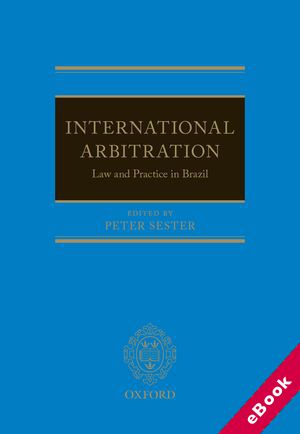
The device(s) you use to access the eBook content must be authorized with an Adobe ID before you download the product otherwise it will fail to register correctly.
For further information see https://www.wildy.com/ebook-formats
Once the order is confirmed an automated e-mail will be sent to you to allow you to download the eBook.
All eBooks are supplied firm sale and cannot be returned. If you believe there is a fault with your eBook then contact us on ebooks@wildy.com and we will help in resolving the issue. This does not affect your statutory rights.
Since the enactment of the 1996 Brazilian Arbitration Law, Brazil has become one of the fastest growing arbitration markets in the world; currently ranking third in the top-ten list of countries with most parties involved in ICC Arbitrations. When it comes to international contracts, and particularly within certain industries, arbitration has become the standard, and sometimes almost the only, means of dispute resolution.
This book offers an in-depth commentary on the Brazilian substantive law and the case law arising from the 1996 Arbitration Act and examines the interrelationship with Brazilian commercial and corporate law as well as the domestic treatment of private international law in the Brazilian courts. It includes a detailed synopsis of the rules issued by the leading Brazilian arbitration institutions as well as key comparisons on fees, information of annulment proceedings, and the number of cases they hold. International Arbitration: Law and Practice in Brazil has chapters covering the application of arbitration in various areas of practice, including labour law, oil, gas, and energy, construction, public procurement, stock and shareholder disputes, and capital market transactions. These are all areas where disputes require in-depth technical and specialist knowledge of law and practice in Brazil.
The work also provides analysis of Brazil's approach to investment arbitration. The comprehensive and specialist treatment in this book will assist practitioners and academics with a practice or scholarly interest in understanding the legal framework for, and practice of, arbitration in Brazil. The work also includes an introduction which sets the historical and social context in which the Brazilian Arbitration Law emerged and developed. International Arbitration: Law and Practice in Brazil benefits from an expert group of international contributors to ensure the domestic framework is assessed from the perspective of international arbitration standards and practice.